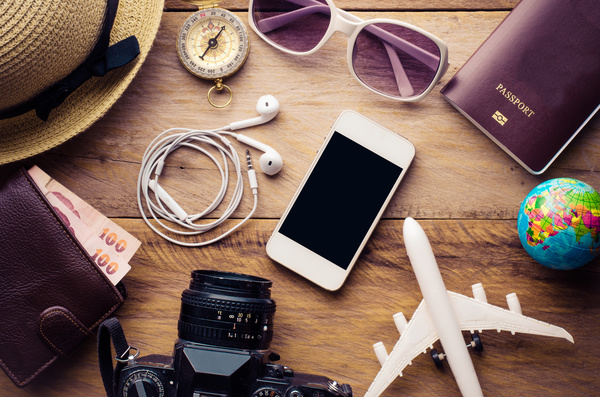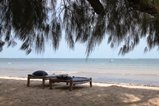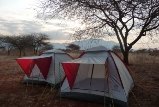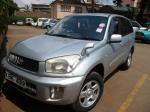Safari Tips
Safari Tips & Preparations for your Journey to Kenya

VISA
US passport holders need a visa to enter Kenya, but they can get it at the airport or border crossing when they arrive in Kenya (it is preferable to have the US$50 in cash with you). If you want to plan ahead then you can apply for a visa in the US. Details and forms can be found on the Kenyan Embassy web site.
Nationals from some Commonwealth countries do not need a visa with the exception of Antigua, Bermuda, Guyana, India, South Africa, Sri Lanka and the UK. All nationals of other countries require a visa. Tourist visas are valid for up to 90 days. For current information see the Kenyan Embassy web site. There are two consulate locations in the US, Los Angeles & New York.
A single-entry visa costs US$50 and a multiple entry visa US$100. If you are planning on visiting just Kenya, then a single-entry is all you need. If your plans include crossing over to Tanzania/Zanzibar to climb Mount Kilimanjaro, visit the Serengeti or go see the gorillas in Rwanda then you'll need a multiple-entry visa if you wish to re-enter Kenya again.
Immunizations & Health Tips
No immunizations are required by law to enter Kenya if you are traveling directly from Europe or the US. If you are traveling from a country where Yellow Fever is present you will need to prove you have had the inoculation.
Several vaccinations are highly recommended, they include:
- Yellow Fever
- Typhoid
- Hepatitis A
- Diptheria
Make sure you have a comprehensive medical insurance policy to cover you for all emergencies. Don’t travel without it! One of THE most important safari tips I can give you!
Before you leave also make sure you have your medication that you take on a daily bases with you and that it is enough for your entire trip!!!
Contact wearers, take your glasses as well, as your eyes might get irritate by all the dust. Oh, and pack some extra contacts and an extra pair of glasses!
See your dentist if you are planning on an extended longer trip!!
Malaria
There is a risk of catching malaria pretty much everywhere you travel in Kenya. The highlands used to be a low-risk area, but even there you have to be careful and take precautions.
Kenya is home to the chloroquine-resistant strain of malaria as well as several others. Make sure your doctor or travel clinic knows you are traveling to Kenya (don't just say Africa) so s/he can prescribe the right anti-malarial medication. - There is a homeopathic malaria treatment available as well. Education is the key!
Safari Tips on how to avoid malaria are to use Insecticide sprays and Insect repellents. Also, which is probably one of the most important and easiest precautions is to cover your legs and arms, especially in the evenings! Wearing light-colored clothing is also a must. Sleep under a mosquito net whenever you can. Little things like this will go a long way in preventing catching malaria!!
About Money
A combination of Traveler checks and Credit cards seem to be working pretty good. The rates you get, when using your Credit card to withdraw some money in Kenya, are the best, instead of changing money overseas. - In the last few years (2011) I have been only traveling with my credit cards and once at the Nairobi airport either exchange money or take money out of the ATM machine right there. Just make sure you have the right amount for the visa in CASH on you before you get the the immigration counter!
Travel to Kenya - Safari Tips
Safari tips and links to websites that offer the best prices and flights to Nairobi! Click here to get there!
KENYA WEATHER
Best times to visit
Central Kenya/Nairobi: From December to mid March days are hot, sunny and dry, and nights are usually cool. Also nicest time to climb Mount Kenya, as peaks are normally cloud free. The main rainy season occurs mid-March to May, with a shorter period of rain in November.
The Coral Coast/Mombasa: The prime time for fishermen, snorkellers and scuba divers is August to March when seas are calm and the water is clear. Over April and May, and into June many hotels close, but visitors are sure to find a hotel open during that time.
Western Kenya: To visit the Masai Mara, almost any time is good, though heavy rains from end March to May and again in November to early December can make travel difficult. July to September normally coincides with the wildebeest migration. Rain can occur in any month at Lake Victoria, usually late afternoon.
Great Rift Valley: Almost any time of the year is suitable, but during rainy season, state of roads can make driving difficult, particularly in national parks and reserves.
Volunteer in Kenya
Some other safari tips and ways to travel to Kenya are to combine it with volunteering. Possibly in wildlife conservation, working with Kenya’s street children, teaching in rural areas or helping in reforestation efforts around Mount Kenya. Click here for more info!
Photography
If you opt on taking your Digital camera and after your safari you would like to share these pictures with friends and family, the Kodak EasyShare Gallery or any other online photo gallery offers great ways to connect with them and share your trip.
Digital photography is the way to go and if you can take a 100-300 lens, go for it!! The new Canon's and Nikon's would be great recommendations. The small point-and-shoots are fantastic alternatives and weigh less!
Currency Converter
Need to convert some Dollars into Kenyan Shillings or vice versa?
This Currency Converter can get you the exchange rate for both and give you the right numbers in a flash.
It also has tons of other countries listed, that you might need in the future. You never know where you might end up traveling one day?!
Return from Safari Tips to the Home Page





